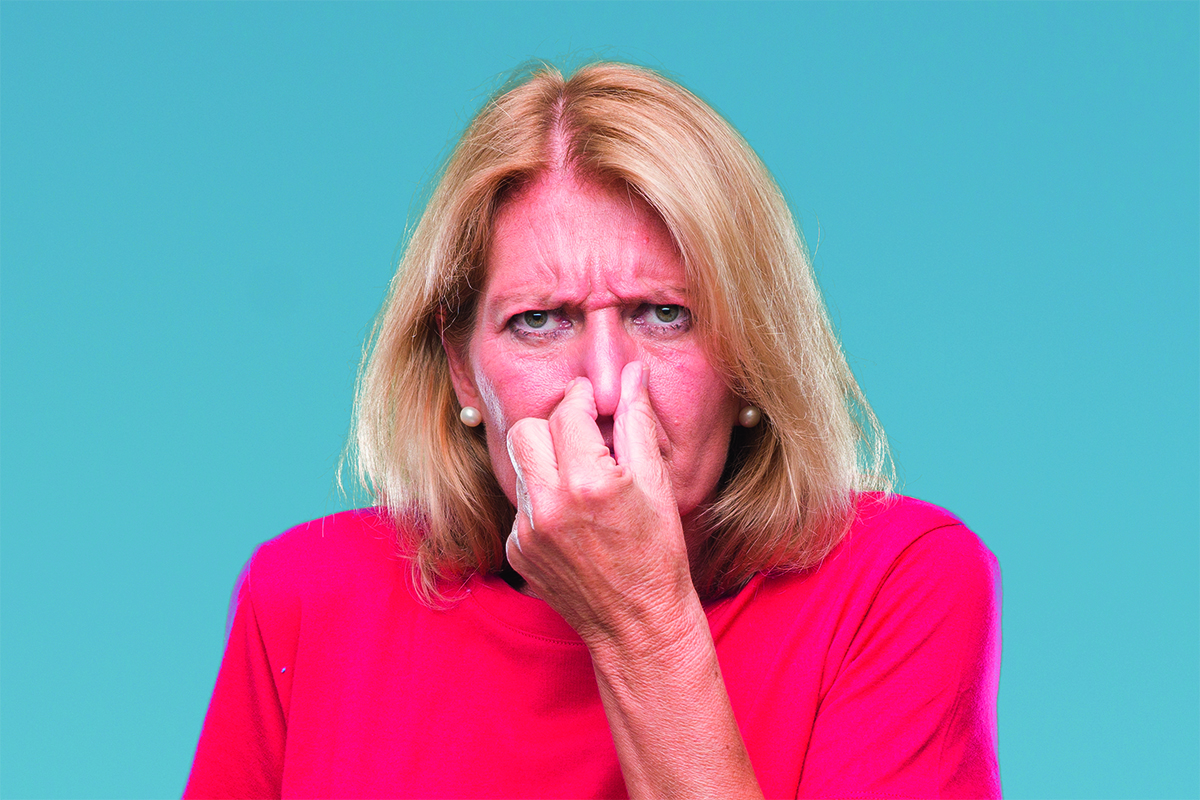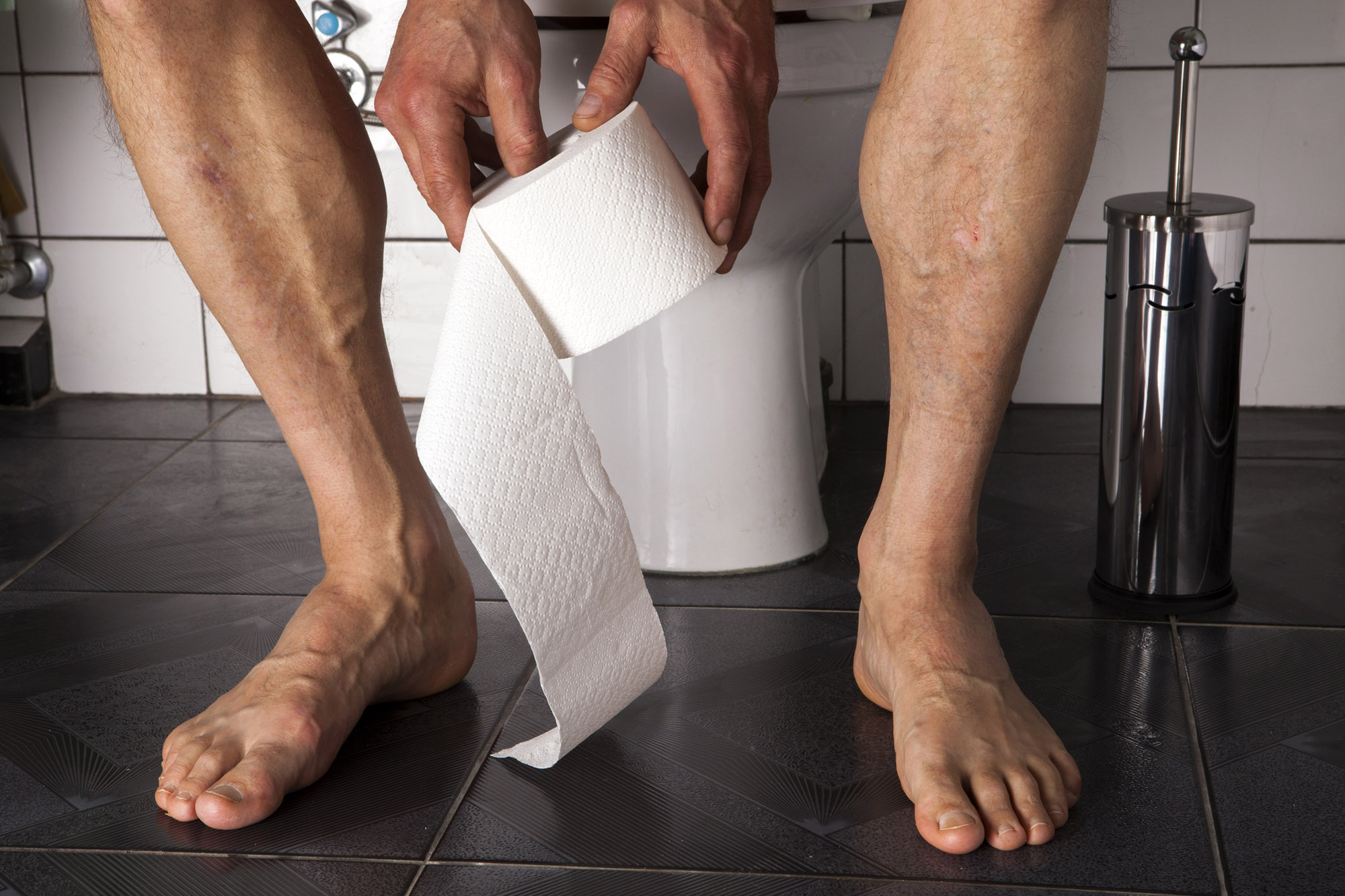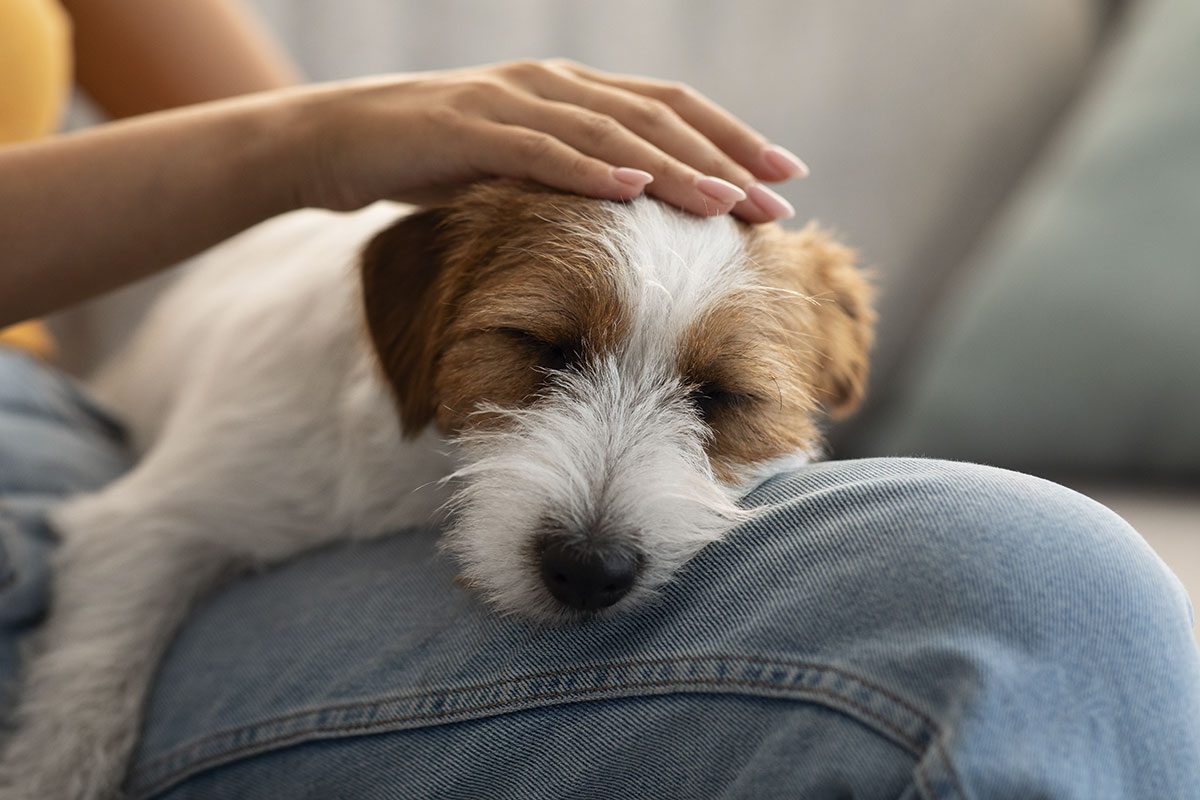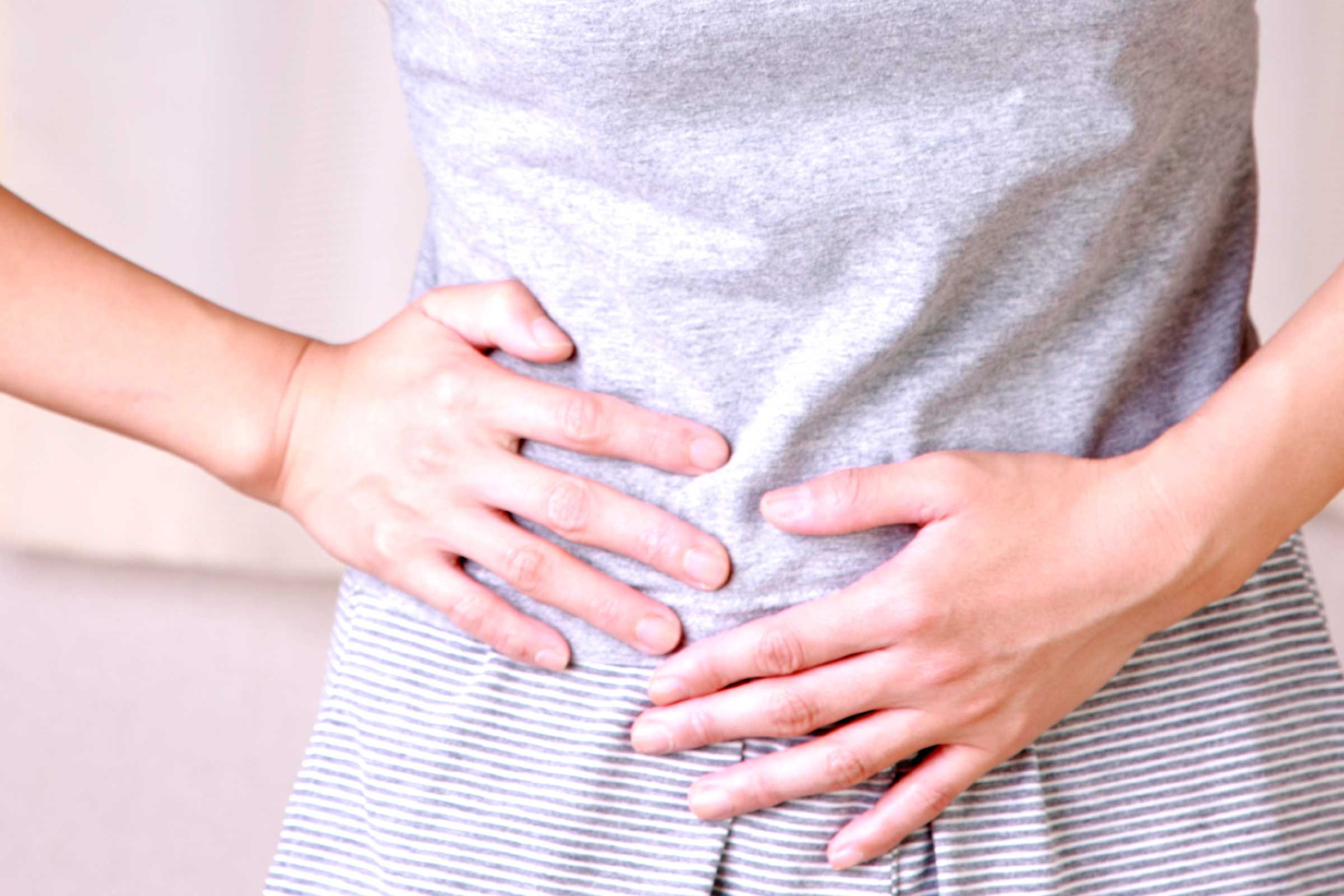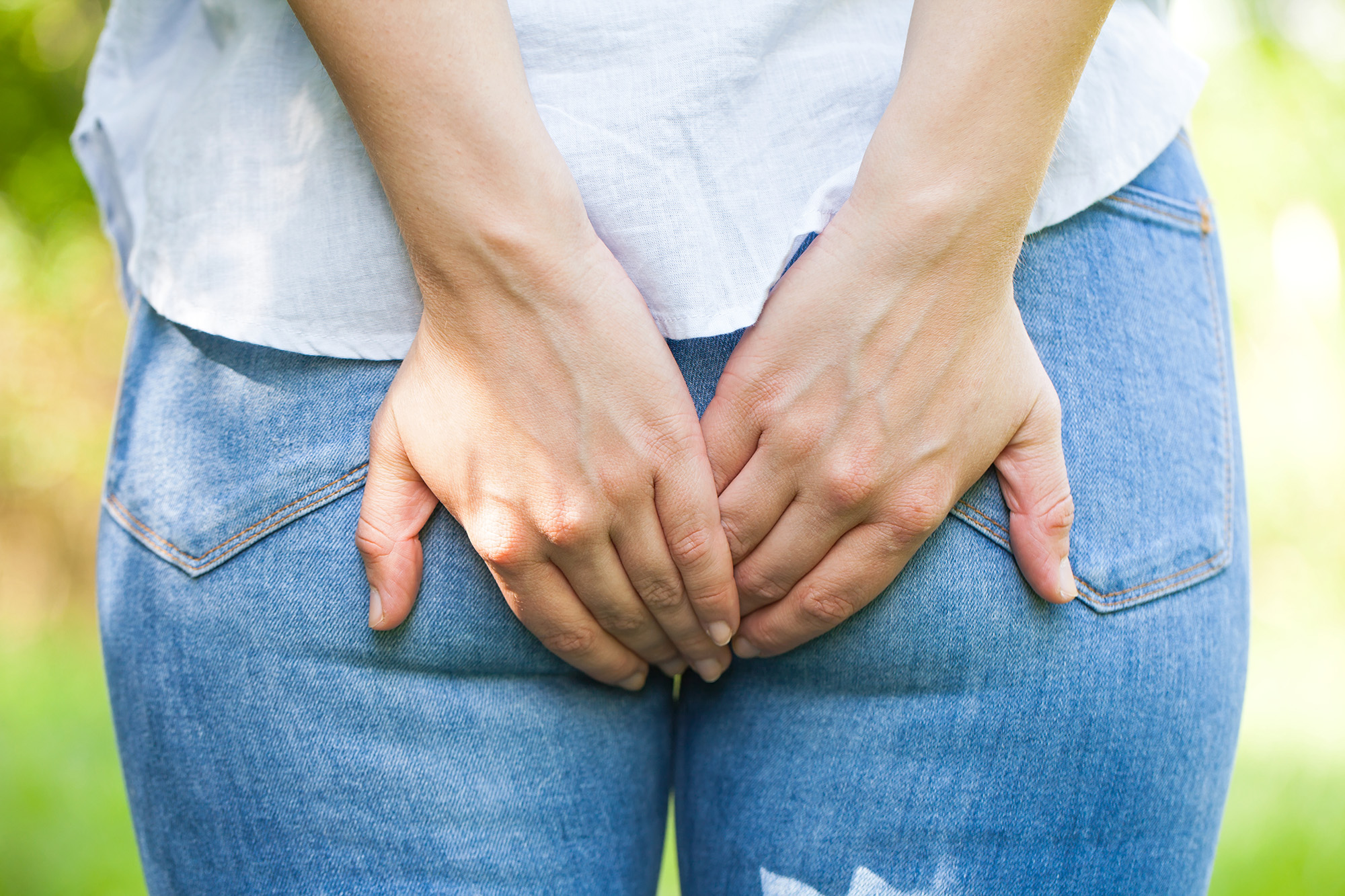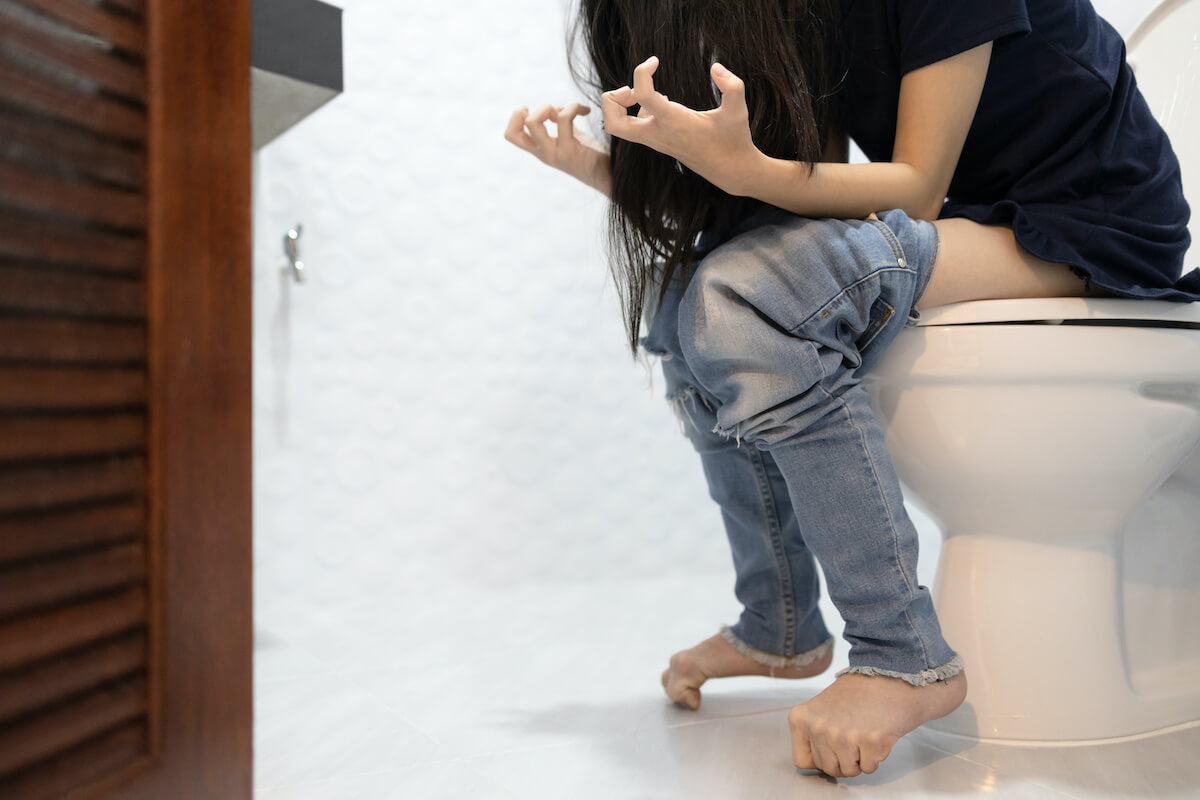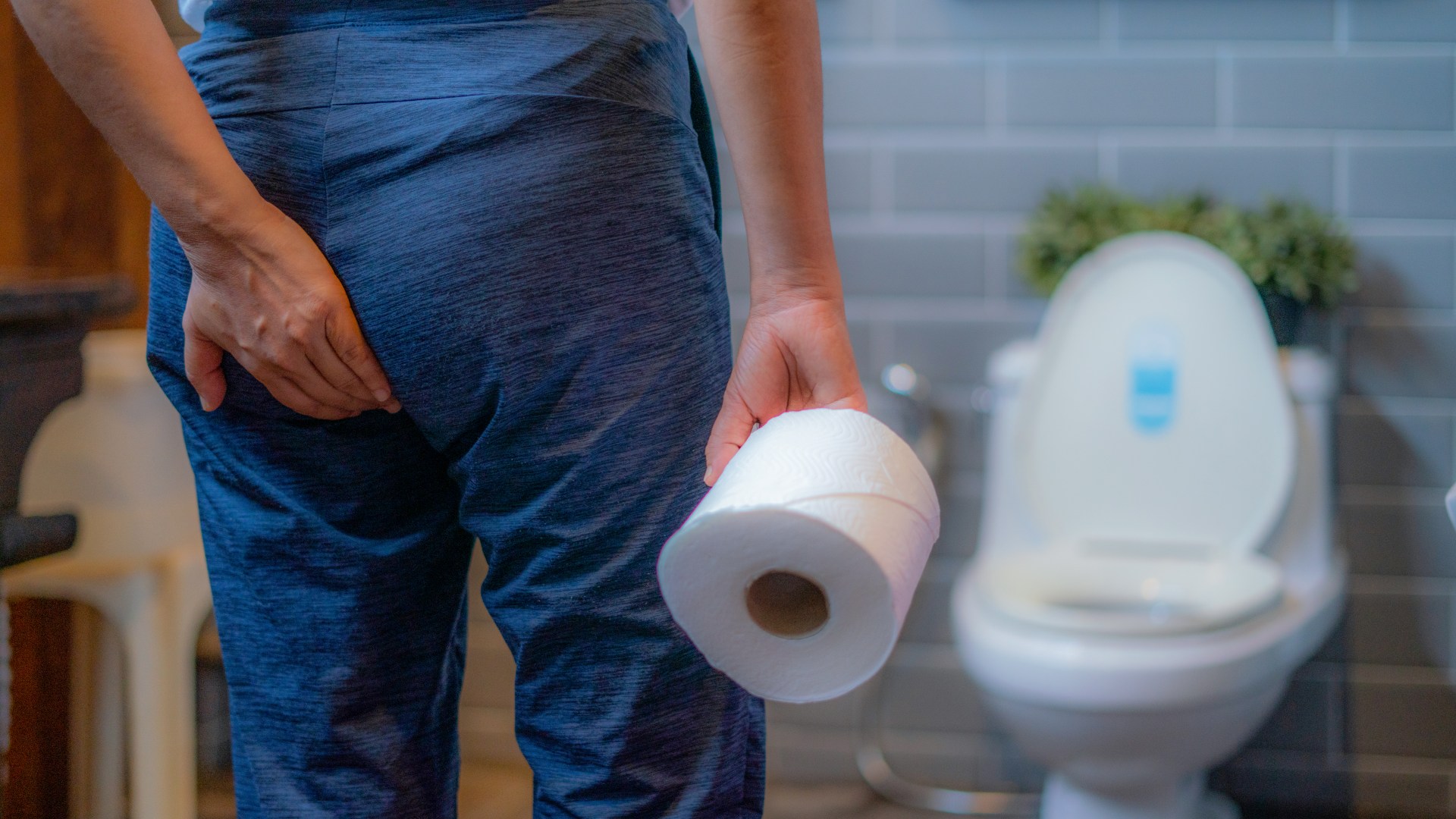

FAQs
When You Fart And Poop Yourself
Published: July 31, 2023
Find answers to general questions about the embarrassing situation of farting and pooping yourself. Learn how to handle and prevent it effectively.
(Many of the links in this article redirect to a specific reviewed product. Your purchase of these products through affiliate links helps to generate commission for Under-tec.com, at no extra cost. Learn more)
Table of Contents
- When You Fart And Poop Yourself
- Introduction
- Causes of Farting and Accidental Bowel Movements
- Medical Conditions That May Contribute
- Dietary Factors That Increase the Risk
- The Role of Digestive Disorders
- Tips for Managing and Preventing Accidents
- Seeking Medical Help and When to Consult a Doctor
- Coping with Embarrassment and Social Stigma
- Conclusion
When You Fart And Poop Yourself
Accidental bowel movements are an embarrassing and sometimes distressing occurrence that can happen to anyone. It’s a situation we’d rather not find ourselves in, but it’s important to understand that it is a natural bodily function and can happen for a variety of reasons. When you experience the unfortunate combination of farting and pooping yourself, it can leave you feeling embarrassed and uncomfortable. However, it’s crucial to approach this topic with understanding and empathy, as it is more common than you may realize.
Accidental bowel movements, often referred to as fecal incontinence, occur when the muscles that control the release of stool from the rectum are compromised. This can lead to unexpected leaks or complete loss of bowel control. While it’s commonly associated with the elderly or those with certain medical conditions, it can happen to individuals of any age and health status.
There are several causes that can contribute to farting and accidentally pooping yourself. Some common factors include muscle weakness in the anal sphincter, damage to the nerves that control bowel movements, or even a congenital defect in the rectum. In some cases, medication side effects or certain medical procedures can also lead to loss of bowel control.
Additionally, certain medical conditions can increase the risk of experiencing accidents. Conditions such as irritable bowel syndrome (IBS), Crohn’s disease, or ulcerative colitis can cause diarrhea or urgency in bowel movements, which in turn can lead to accidental leaks. Other conditions, such as diabetes or multiple sclerosis, can affect the nerves and muscles involved in bowel control, potentially leading to loss of control.
Dietary factors can also play a role in the occurrence of accidental bowel movements. Consuming foods or beverages that have a laxative effect or cause gas can increase the likelihood of experiencing flatulence and an urge for bowel movements. Foods high in fiber, certain artificial sweeteners, caffeine, or spicy foods are known to have such effects on the digestive system.
Individuals with digestive disorders, such as chronic constipation or diarrhea, are at a higher risk of experiencing unexpected bowel movements. Chronic constipation can lead to weakened rectal muscles and increased pressure in the rectum, making it easier for gas or stool to escape. On the other hand, chronic diarrhea can cause urgency and difficulty in controlling bowel movements.
To manage and prevent accidents, there are some helpful tips you can follow. Maintaining a healthy diet and incorporating fiber-rich foods can regulate bowel movements and prevent constipation or diarrhea. Practicing pelvic floor exercises can strengthen the muscles responsible for controlling bowel movements. Maintaining a regular bathroom schedule can also help train your body to have predictable bowel movements.
It’s essential to seek medical help if you’re experiencing frequent or worsening accidental bowel movements, as it may indicate an underlying medical condition. A healthcare professional can evaluate your symptoms, perform necessary tests, and recommend appropriate treatment options. They can also provide guidance on managing and coping with the embarrassment and social stigma that may come with accidental bowel movements.
Coping with the embarrassment and social stigma surrounding accidents can be challenging. It’s important to remember that accidents happen, and they do not define your worth or who you are as a person. Educating close friends and family about your condition can help create a support system and alleviate any shame or embarrassment you may feel. Wearing protective undergarments can also provide peace of mind and minimize any potential embarrassment in public settings.
Introduction
Accidental bowel movements can be an embarrassing and uncomfortable experience. The occurrence of farting and pooping oneself can leave individuals feeling self-conscious and anxious about their bodily functions. However, it is important to understand that this is a normal and natural bodily process that can happen to anyone, regardless of age or health status. In this article, we will explore the causes of farting and accidental bowel movements, as well as discuss ways to manage and prevent them.
Accidental bowel movements, also known as fecal incontinence, happen when there is a loss of control over bowel movements. This loss of control can result in unexpected leaks or complete bowel voiding. While this condition is often associated with older individuals or those with certain medical conditions, it can affect people of any age. It is important to approach this topic with empathy and understanding, as it is more common than many realize.
There are several factors that can contribute to the occurrence of accidental bowel movements. Weakness in the anal sphincter muscles, damage to the nerves responsible for bowel control, or congenital defects in the rectum can all play a role in the loss of control. Medication side effects and certain medical procedures can also contribute to this issue. Additionally, certain underlying medical conditions, such as irritable bowel syndrome (IBS), Crohn’s disease, or ulcerative colitis, can increase the risk of experiencing accidents due to diarrhea or urgency in bowel movements.
Dietary factors can also influence the likelihood of experiencing accidental bowel movements. Consuming foods or beverages that have a laxative effect or cause gas can increase the risk of flatulence and bowel urgency. Foods high in fiber, certain artificial sweeteners, caffeine, or spicy foods are known to have such effects on the digestive system. Furthermore, individuals with digestive disorders like chronic constipation or diarrhea are at a higher risk of experiencing unexpected bowel movements.
Managing and preventing accidental bowel movements require a multi-faceted approach. This involves maintaining a healthy diet, practicing pelvic floor exercises to strengthen the muscles responsible for controlling bowel movements, and establishing a regular bathroom schedule. Seeking medical help is crucial if accidents persist or worsen, as it could indicate an underlying medical condition. Additionally, it is important to address the emotional aspect of coping with embarrassment and social stigma that may accompany accidental bowel movements.
In the following sections, we will delve deeper into the causes of farting and accidental bowel movements, discuss relevant medical conditions, analyze dietary factors that can contribute to accidents, provide tips for managing and preventing accidents, guide you on when to seek medical help, and offer strategies for coping with embarrassment and social stigma. By understanding the underlying factors and implementing appropriate strategies, individuals can regain control over their bowel movements and live a more comfortable and confident life.
Causes of Farting and Accidental Bowel Movements
Farting and accidental bowel movements can occur due to a variety of reasons. Understanding the underlying causes is essential in managing and preventing these occurrences. Here are some common factors that contribute to the involuntary release of gas and stool:
- Muscle weakness: Weakness in the muscles of the anal sphincter can lead to a loss of control over bowel movements. This weakness can be caused by factors such as childbirth, aging, or damage to the muscles themselves.
- Nerve damage: Nerves play a crucial role in controlling bowel movements. When these nerves are damaged or compromised, it can result in the loss of control over the muscles that regulate bowel movements.
- Congenital defects: Some individuals are born with structural defects in their rectums or anal sphincters, which can make it challenging to control bowel movements effectively.
- Medication side effects: Certain medications, such as laxatives or stool softeners, can increase the likelihood of experiencing accidental bowel movements due to their impact on bowel motility and consistency.
- Medical procedures: Surgeries or medical procedures that involve the rectum or anal area can sometimes result in temporary or permanent loss of control over bowel movements.
While the above factors can contribute to the occurrence of accidental bowel movements, it’s important to note that they are not the sole causes. Underlying medical conditions can also play a significant role. Some of these conditions include:
- Irritable bowel syndrome (IBS): IBS is a gastrointestinal disorder characterized by abdominal pain, changes in bowel habits, and increased sensitivity of the colon. It can lead to episodes of diarrhea or constipation, which can contribute to the occurrence of accidental bowel movements.
- Crohn’s disease: Crohn’s disease is a chronic inflammatory bowel disease that can affect any part of the digestive tract. It can cause inflammation, ulcers, and narrowing of the intestines, leading to bowel irregularities and potential accidents.
- Ulcerative colitis: Ulcerative colitis is a type of inflammatory bowel disease that primarily affects the colon and rectum. It causes inflammation and ulcers in the lining of the colon, resulting in frequent bowel movements and potential loss of control.
- Diabetes: Diabetes can affect the nerves that control bowel movements, leading to weakened muscles and a higher risk of accidental bowel movements.
- Multiple sclerosis: Multiple sclerosis is a neurological disorder that affects the central nervous system. It can disrupt the signals between the brain and the muscles involved in bowel control, potentially leading to the loss of control over bowel movements.
Understanding the causes of farting and accidental bowel movements is the first step in managing and preventing these occurrences. By identifying the underlying factors contributing to the loss of control, individuals can work with healthcare professionals and implement strategies to regain control over their bowel movements.
Medical Conditions That May Contribute
In addition to the general causes discussed earlier, several specific medical conditions can contribute to the occurrence of farting and accidental bowel movements. Understanding these conditions is crucial in addressing the underlying factors and managing these symptoms effectively. Here are some medical conditions that may contribute to accidental bowel movements:
- Irritable Bowel Syndrome (IBS): IBS is a common gastrointestinal disorder characterized by chronic abdominal pain, changes in bowel habits, and increased sensitivity of the colon. The exact cause of IBS is unknown, but it is believed to be a combination of factors including abnormal muscle contractions in the intestines, heightened sensitivity to pain, and disturbances in the gut-brain axis. These factors can lead to episodes of diarrhea, constipation, or both, increasing the risk of accidental bowel movements.
- Crohn’s Disease: Crohn’s disease is a chronic inflammatory bowel disease that can affect any part of the digestive tract, from the mouth to the anus. It causes inflammation, deep ulcers, and narrowing of the intestinal walls, leading to symptoms such as abdominal pain, diarrhea, rectal bleeding, and unintended weight loss. The inflammation and irregularities in the digestive tract can disrupt bowel motility and contribute to accidental bowel movements.
- Ulcerative Colitis: Ulcerative colitis is another type of chronic inflammatory bowel disease that primarily affects the colon and rectum. It causes inflammation and ulcers in the lining of the colon, leading to symptoms such as abdominal pain, bloody diarrhea, fatigue, and weight loss. The inflammation and ulceration can impair the normal functioning of the colon, resulting in an increased risk of accidental bowel movements.
- Diabetes: Diabetes is a metabolic disorder that affects the body’s ability to regulate blood sugar levels. Over time, high blood sugar levels can damage the nerves, a condition known as diabetic neuropathy. When the nerves that control bowel function are affected, it can lead to weakened muscles and reduced sensation, contributing to an increased risk of accidental bowel movements.
- Multiple Sclerosis (MS): Multiple sclerosis is a chronic autoimmune disease that affects the central nervous system. The immune system mistakenly attacks the protective covering of nerve fibers, disrupting the transmission of signals between the brain and the rest of the body. This can lead to a wide range of symptoms, including fatigue, muscle weakness, coordination problems, and bowel dysfunction. In some cases, the loss of control over the muscles involved in bowel movements can result in unintended bowel movements.
It’s important to note that these medical conditions can vary in severity and affect individuals differently. If you have been diagnosed with any of these conditions and are experiencing accidental bowel movements, it is essential to work closely with your healthcare team to manage your symptoms effectively. They can provide valuable guidance, recommend appropriate treatment options, and help you regain control over your bowel movements.
Dietary Factors That Increase the Risk
Your dietary choices can significantly impact your digestive health and increase the risk of experiencing accidental bowel movements. Certain foods and beverages can contribute to gas, bloating, and changes in bowel habits, leading to an increased likelihood of farting and unintentional bowel movements. Understanding these dietary factors is essential in managing and preventing these symptoms. Here are some common dietary factors that may increase the risk:
- Fiber-rich foods: While fiber is an essential part of a healthy diet, consuming excessive amounts of fiber, especially insoluble fiber, can lead to increased bowel movements and loose stools. This can contribute to an increased risk of accidental bowel movements. Examples of high-fiber foods include whole grains, legumes, fruits, and vegetables.
- Artificial sweeteners: Some artificial sweeteners, such as sorbitol and mannitol, are known to have a laxative effect. Consuming foods or beverages that contain these sweeteners in large quantities can lead to increased bowel movements and potentially contribute to accidental bowel movements.
- Caffeine: Caffeine is a stimulant that can increase bowel motility and result in more frequent bowel movements. Sources of caffeine include coffee, tea, energy drinks, and chocolate. Consuming excessive amounts of caffeine can heighten the risk of accidental bowel movements.
- Spicy foods: Spicy foods can irritate the digestive system and cause increased gas production, leading to flatulence and an urge for bowel movements. Common spicy foods include hot peppers, curry dishes, and spicy sauces. Limiting the consumption of these foods can help minimize the risk of farting and accidental bowel movements.
- Fatty foods: Foods that are high in fat can be harder to digest and may contribute to diarrhea or loose stools. This can increase the risk of unintentional bowel movements. Examples of fatty foods include fried foods, fatty cuts of meat, full-fat dairy products, and processed snacks.
Each individual may have different sensitivities and reactions to these dietary factors. It can be helpful to keep a food diary to identify specific foods or beverages that trigger symptoms and increase the risk of accidental bowel movements. Once identified, you can make informed choices and avoid or limit the consumption of these triggering items.
It’s important to note that a healthy, well-balanced diet is still crucial for overall health and should not be compromised solely to prevent accidental bowel movements. Consult with a healthcare professional or registered dietitian who can provide personalized dietary recommendations and help you strike a balance between managing your symptoms and maintaining your overall health.
The Role of Digestive Disorders
Digestive disorders can significantly impact the normal functioning of the gastrointestinal tract and contribute to the occurrence of farting and accidental bowel movements. These conditions can affect various parts of the digestive system, leading to symptoms such as changes in bowel habits, abdominal pain, and increased bowel urgency. Understanding the role of digestive disorders is crucial in managing and addressing the underlying factors that contribute to these symptoms. Here are some common digestive disorders that can increase the risk of accidental bowel movements:
- Chronic Constipation: Chronic constipation occurs when bowel movements become infrequent or difficult to pass. This condition can lead to hardened stools and increased pressure in the rectum, making it easier for gas or stool to escape unexpectedly.
- Chronic Diarrhea: Chronic diarrhea is characterized by frequent loose stools. It can be caused by various factors, including infections, food intolerances, or underlying conditions such as irritable bowel syndrome (IBS) or inflammatory bowel disease (IBD). The urgency and increased frequency of bowel movements associated with chronic diarrhea can result in accidental bowel movements.
- Hemorrhoids: Hemorrhoids are swollen blood vessels in the rectum or anus. They can cause discomfort, itching, and bleeding during bowel movements. In some cases, hemorrhoids can weaken the muscles of the anal sphincter, increasing the risk of accidental bowel movements.
- Anal Fistulas: Anal fistulas are abnormal connections or tunnels that form between the anus or rectum and the skin surrounding the area. They can cause pain, discharge, and recurrent infections. These complications can disrupt the normal functioning of the anal sphincter muscles, potentially leading to the loss of control over bowel movements.
- Diverticulitis: Diverticulitis is the inflammation or infection of small pouches (diverticula) that form in the lining of the colon. This condition can cause abdominal pain, fever, and changes in bowel habits. In severe cases, it can lead to complications such as abscesses or bowel perforation, which can result in accidental bowel movements.
If you have been diagnosed with a digestive disorder and are experiencing accidental bowel movements, it is important to work closely with your healthcare provider. They can help manage your symptoms, recommend appropriate treatment options, and provide support in managing the impact of these disorders on your daily life.
It’s worth noting that effective management of digestive disorders can significantly reduce the risk of accidental bowel movements. This may involve a combination of lifestyle modifications, dietary changes, medication, and, in some cases, surgical intervention. Working with your healthcare team will ensure a comprehensive and personalized approach to address the underlying digestive disorder and improve your quality of life.
Tips for Managing and Preventing Accidents
Dealing with farting and accidental bowel movements can be challenging, but there are several strategies that can help manage and prevent these accidents. By implementing these tips, individuals can regain control over their bowel movements and reduce the occurrence of embarrassing moments. Here are some helpful suggestions:
- Maintain a healthy diet: A well-balanced diet plays a vital role in maintaining bowel regularity and preventing bowel irregularities. Ensure you consume a diet rich in fiber, including fruits, vegetables, whole grains, and legumes. Additionally, staying hydrated by drinking an adequate amount of water can help soften stool and aid in regular bowel movements.
- Practice pelvic floor exercises: Pelvic floor exercises, such as Kegels, can strengthen the muscles responsible for controlling bowel movements. Regularly performing these exercises can improve muscle tone and control, reducing the risk of accidental bowel movements.
- Establish a regular bathroom schedule: Training your body to follow a consistent bathroom schedule can help regulate bowel movements and minimize unexpected urges. Try to set aside a specific time each day to empty your bowels, even if you don’t feel the urge to do so.
- Stay physically active: Regular physical activity and exercise can promote healthy digestion and bowel regularity. Engaging in activities such as walking, jogging, or yoga can help stimulate bowel movements and improve overall bowel health.
- Wear protective undergarments: Wearing protective undergarments, such as absorbent pads or adult diapers, can provide peace of mind and minimize any potential embarrassment in case of accidents. These products are discreet and can help manage any leakage that may occur.
- Keep a bathroom kit: When venturing outside, it can be helpful to carry a bathroom kit with essential items like wet wipes, spare underwear, and plastic bags for disposal. Having these items readily available can help manage accidents if they occur unexpectedly.
- Reduce stress levels: Stress and anxiety can worsen bowel symptoms and increase the risk of accidents. Incorporate stress management techniques such as deep breathing exercises, meditation, or engaging in hobbies that help you relax and unwind.
It’s important to remember that managing and preventing accidents requires patience and consistency. It may take time to find the right combination of strategies that work for you. If accidents persist or become more frequent, it is recommended to consult with a healthcare professional for further evaluation and guidance.
Lastly, don’t be too hard on yourself if accidents happen despite your best efforts. Remember that it’s a natural part of life, and seeking support from loved ones or support groups can help alleviate any embarrassment or social stigma associated with accidental bowel movements.
Seeking Medical Help and When to Consult a Doctor
While occasional accidents are not uncommon, persistent or worsening episodes of farting and accidental bowel movements may require medical intervention. It is important to know when to seek medical help to identify any underlying medical conditions and receive appropriate treatment. Here are some indicators of when it may be necessary to consult a doctor:
- Frequent accidents: If you are experiencing accidents on a regular basis, regardless of your efforts to manage and prevent them, it may be a sign of an underlying issue that requires medical attention.
- Impact on daily life: If accidental bowel movements are significantly affecting your quality of life, causing distress, or interfering with your ability to engage in daily activities, it is important to seek professional help.
- Changes in bowel habits: If you notice sudden or unexplained changes in your bowel habits, such as persistent diarrhea or constipation, it may be an indication of an underlying medical condition that needs evaluation.
- Presence of other symptoms: If you experience additional symptoms alongside the accidental bowel movements, such as abdominal pain, rectal bleeding, weight loss, or weakness, it is important to consult a doctor to rule out any serious underlying conditions.
- Impact on mental well-being: If you are experiencing significant emotional distress, anxiety, or depression related to the accidents, seeking medical help can provide both physical and emotional support.
When you consult a doctor regarding your symptoms, they may perform a thorough evaluation of your medical history, conduct a physical examination, and potentially order diagnostic tests. These tests may include stool analysis, colonoscopy, or imaging studies to assess the health of your gastrointestinal tract and identify any underlying issues.
Depending on the diagnosis, your doctor may recommend appropriate treatment options. These may range from lifestyle modifications and dietary changes to medications or surgical interventions, depending on the cause of your symptoms. Your doctor will work closely with you to develop a personalized treatment plan that suits your needs.
Remember, seeking medical help is a proactive step towards managing and improving your overall well-being. Your doctor can provide the necessary guidance, support, and treatment options to help you regain control over your bowel movements and lead a more comfortable and fulfilling life.
Coping with Embarrassment and Social Stigma
Dealing with farting and accidental bowel movements can be accompanied by feelings of embarrassment, shame, and social stigma. It is important to recognize that accidents happen, and they do not define your worth or who you are as a person. Here are some strategies to help cope with the emotional impact of farting and accidental bowel movements:
- Educate your close ones: Sharing your experience and educating your close friends, family, or trusted individuals about your condition can help create a supportive environment. By raising awareness, you can help dispel any misconceptions and foster understanding and empathy.
- Join support groups: Connecting with others who have similar experiences can provide a sense of community and understanding. Support groups or online forums dedicated to bowel challenges can provide valuable insights, tips, and emotional support.
- Practice self-compassion: Remember that accidental bowel movements are not your fault and do not reflect your value as a person. Treat yourself with kindness and compassion, just as you would treat a loved one who is facing a similar situation.
- Seek professional help: If the emotional impact becomes overwhelming or affects your mental well-being, consider reaching out to a therapist or counselor who can provide guidance and support in processing these feelings.
- Wear protective undergarments: Wearing protective undergarments, such as absorbent pads or adult diapers, can provide peace of mind and minimize any potential embarrassment in public settings. Knowing that you have protection can help alleviate anxiety and increase confidence.
- Practice relaxation techniques: Engage in relaxation techniques such as deep breathing exercises, meditation, or mindfulness to help reduce stress and anxiety. These techniques can provide a sense of calm and help manage any emotional distress associated with farting and accidental bowel movements.
It’s important to remember that you are not alone in dealing with these challenges. Millions of people face similar situations, and finding ways to cope and adapt can lead to a more fulfilling and confident life. Surround yourself with a supportive network and focus on self-care and self-acceptance.
If you find that the embarrassment and social stigma become particularly difficult to manage, consider seeking professional help from a therapist who specializes in helping individuals cope with chronic health conditions. They can provide you with strategies and support to navigate the emotional impact of farting and accidental bowel movements.
Over time, with self-compassion and individualized strategies, you can overcome the emotional challenges associated with these situations and regain confidence in yourself and your ability to manage your symptoms.
Conclusion
Accidental bowel movements, including farting and unintentional pooping, can be embarrassing and uncomfortable. However, it is crucial to understand that they are natural bodily functions that can happen to anyone. Various factors contribute to these occurrences, including muscle weakness, nerve damage, congenital defects, medication side effects, and certain medical conditions.
Managing and preventing accidents involves a multi-faceted approach. Maintaining a healthy diet, practicing pelvic floor exercises, establishing a regular bathroom schedule, and staying physically active can all contribute to better bowel control. Seeking medical help is essential if accidents persist or worsen, as it may indicate an underlying medical condition that requires treatment.
Dealing with the embarrassment and social stigma surrounding accidental bowel movements can be challenging. However, by educating loved ones, seeking support from others facing similar challenges, practicing self-compassion, and wearing protective undergarments, individuals can navigate these emotional hurdles and regain confidence in themselves.
Remember, it’s important to be patient and kind to yourself throughout this journey. Accidents happen, and they do not define your worth or who you are as a person. By implementing strategies to manage and prevent accidents, seeking medical help when needed, and coping with the emotional aspects of these situations, you can lead a fulfilling and confident life.


